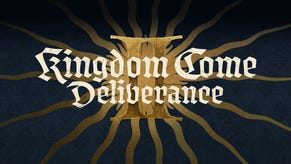Guillermo del Toro: 'I'll do whatever Kojima wants'
Silent Hills is still dead, but Guillermo del Toro would work with Hideo Kojima if the opportunity arose.
Del Toro and and Kojima joined host Geoff Keighley on stage at DICE today to talk about their friendship and collaboration on horror teaser PT.
The filmmaker reiterated that he's pretty much done with video games after this last disappointment.
"Except with this man, I'll do whatever the f**k he wants," del Toro said, indicating Kojima.
"Do you want him to do something, Kojima?" Keighley asked.
"Nah," said Kojima, jokingly. Del Toro explained that he is an albatross; he went to work with THQ and it went bust, and he went to work with Kojima just before a nasty break up with Konami.
"His teeth will fall out this time. He'll be urinating in the toilet and he'll hear something drop and it'll be his teeth," del Toro said of a hypothetical future collaboration with Kojima.
"I'll walk into the building and it will explode."
Putting joking aside, Kojima said he'd love to work with del Toro, and del Toro echoed the sentiment, saying he only takes on projects that motivate him these days.
On the subject of PT, del Toro said the team kept the frame rate and resolution low until the final scenes, which revealed Norman Reedus and the Silent Hills project, to try and trick players into believing it was an independent project.
Working with Sony and creative freedom
"I feel very free right now," Kojima said of his relationship with Sony.
While he does feel some pressure to succeed financially, he has "no intentions" of changing anything he ever does to make it sell better. "That's something I'd never do," he said.
Kojima can't deal with being told to make changes to games to appeal to specific markets. "I can't make those adjustments," he said.
"In that regard, I feel extremely free."
Del Toro said creators "should never self-censor", and should pursue their impulses and ambitions. "All the other freedoms are conditional but that one," he said.
Creatives as magpies
Del Toro said video games are just one influence on his work, along with other films and media. He pointed to his unrealistic lighting and saturated colours, and compared this style to BioShock.
"It needs to be that we still talk about games and movies both as entertainment products and as art. They are both," he said.
Entertainment products are consumed and discarded, del Toro said, whereas art is revisited and critiqued. That doesn't happen enough in games, he said, where the scene is very much focused on the new.
But creatives are like magpies - they collect inspirations and feed off each other. "It's time now for games that we go back and reflect on them as art," del Toro concluded.
Creatives need to be wary of ensuring they have a virtual life (consuming all kinds of media) and having a real life (gathering experiences of their own), del Toro added.
In case you were wondering, del Toro's current gaming obsession is Fallout 4. He's stuck and keeps dying a lot.
Games and the future of artistic media
"What you can do with the medium is amazing. What you can is only limited by the bastards with the money," del Toro said.
Del Toro said, as he has in the past, that we're approaching a "mono platform" world, where games, Internet, TV and movies all blend together.
Kojima is a creator capable of flourishing during this transition, he added, whereas film and TV companies are "dinosaurs" - they come to a cliff and are too heavy to turn.
"Hopefully they'll be like, ahhh!" he joked, miming falling off the edge.
"The beauty of games is their interactivity," Kojima said. "If 100 people see a movie, 100 people will see the same movie."
Games are different. "You can't force the player to do what they don't want to do, or be something they don't want to be. That's the biggest difference between games and movies," Kojima said.
Movies are still better than games for some stories, Kojima added; when a story requires a character to have very specific knowledge, such as medical or legal, a film does a better job.
Films can also make viewers experience things they might turn away from in games, Kojima added, giving the example of Ripley saving people in the Alien movies; no player would go in the room with the monster, he argued.
Bromance
The replay is worth watching if you have any interest in either creative, as it's full of cute stories about their friendship. For example, the two bonded over their shared love for the same generation of anime TV series. They sing the theme songs together, apparently.
"I sing them in Spanish, he sings them in Japanese. We don't understand s**t," del Toro said.
Del Toro said Psycho Mantis in Metal Gear Solid "crystallised" his respect for Kojima, as it scared him badly and inspired a character in Hellboy 3.
In general, though, it's that Kojima works on every aspect of his projects - he's a writer and filmmaker as well as designer, among other roles, so that the entire game world feels of a piece.
"It's a world where you can recognise his voice the moment you're playing the game," del Toro added.
Kojima likes every del Toro film ("Except Mimic," del Toro interjected, "Come on!"), especially Pan's Labyrinth and Hellboy. Kojima admires the latter for debuting human moments in pop culture films.
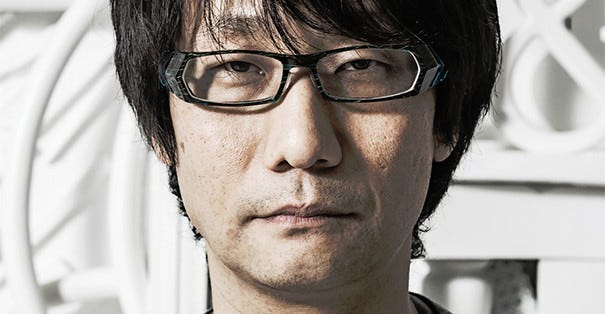



.jpg?width=291&height=164&fit=crop&quality=80&format=jpg&auto=webp)
.jpg?width=291&height=164&fit=crop&quality=80&format=jpg&auto=webp)
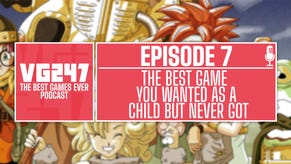
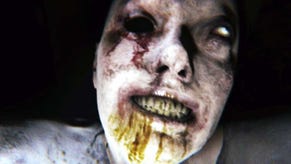
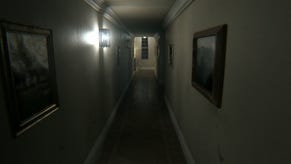
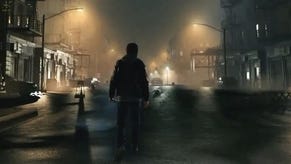
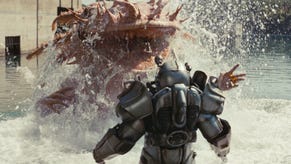
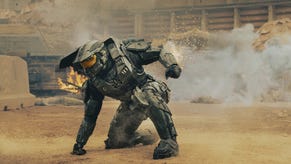
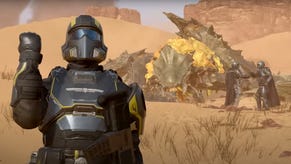
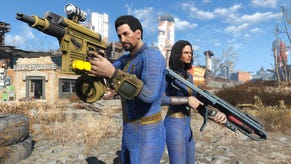
.jpg?width=291&height=164&fit=crop&quality=80&format=jpg&auto=webp)

